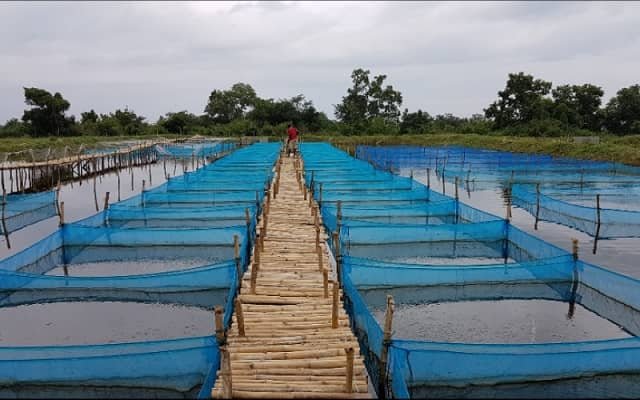New Zealand – New ways to address environmental sustainability challenges faced by the aquaculture industry have been evaluated by a group of scientists as the industry anticipates increasing export earnings to $NZ3 billion by 2035.
NIWA scientist, Dr Jeanie Stenton-Dozey is the lead author of a newly published scientific paper that looks at the potential to use a system known as integrated multi-trophic aquaculture or IMTA.
IMTA is the co-culture of multiple species in close proximity to create balanced systems that improve ecosystem health. It is gaining momentum from researchers and industry as it is seen as an innovative tool to address many of the challenges faced by the sector.
However, to date research has been limited and there are no commercial farms using IMTA practices in New Zealand.
The paper, written by Dr Stenton-Dozey along with NIWA scientist Jeffrey Ren, Phil Heath, formerly of NIWA, and Leo Zamora from the Cawthron Institute and published in the New Zealand Journal of Marine and Freshwater Research, had its origins in a four-year NIWA research programme into IMTA around salmon farms in the Marlborough Sounds.
Dr Stenton-Dozey has looked at the potential to use IMTA in the integration of salmon farms with seaweeds and mussels, and mussel farms with seaweeds and sea cucumbers, providing valuable secondary products such as organic plant fertilizer nutraceuticals and nutritional supplements.
NIWA aquaculture chief scientist Dr Forsythe agrees this is great framework but is cautious about the move forward: “Many regulatory barriers are still in place, which together with the current lack of investment, market security for these new products and associated operational costs form the main constraints to development.”
However, Dr Forsythe says regular meetings between industry, researchers, and regulators to discuss future research and development has invigorated interest in diversification of the sector, including integrating different productive activitie within existing coastal areas and upcoming land-based and higher energy marine operations to enhance the profitability and sustainability of the enterprises. .
Stay Always Informed
Join our communities to instantly receive the most important news, reports, and analysis from the aquaculture industry.
While there is no current economic case for general adoption of multitrophic production, the idea of integrating such systems in future farms has been well received by the some in the mussel industry where there is potential for seasonal production of seaweeds in conjunction with mussels when the principal crop is submerged. In theory, this could be undertaken without compromising mussel production or requiring significant capital investment.
In facing the challenge of sustainable farming practices, it is important to recognise that ecological integration of production does not require the species being integrated to be next to each other on the same farm. The scale that defines integration depends on interactions between the local topography, hydrodynamics, nutrient cycles/flows and ecological functioning within a farm or a bay or a coastal area/region where multiple species are being cultured. It is this inherent flexibility and lack of clear spatial definition that allows for integration under different conditions and combinations in coastal areas/regions, land-based operations and the open ocean. In this context IMTA can enhance the ‘clean and green’ environment seen by many as the cornerstone of the New Zealand aquaculture industry and which is increasingly been used to underpin marketing strategies. The paper has been discussed at the monthly industry Smart & Connected meeting and articles will be published in the next Aquaculture New Zealand on-line magazine, Between the Lines (https://www.aquaculture.org.nz/) and the Marine Farming Association e-newsletter (https://www.marinefarming.co.nz/).
Contact
Dr Jeanie Stenton-Dozey
Marine Ecologist
Andrew Forsythe
Chief Scientist – Aquaculture & Biotechnology
Reference:
Stenton-Dozey, J.M.E., Heath, P., Ren, J.S., Zamora, L.N. (2020) New Zealand aquaculture industry: research, opportunities and constraints for integrated multitrophic farming. New Zealand Journal of Marine and Freshwater Research. DOI: 10.1080/00288330.2020.1752266
Source: NIWA
Editor at the digital magazine AquaHoy. He holds a degree in Aquaculture Biology from the National University of Santa (UNS) and a Master’s degree in Science and Innovation Management from the Polytechnic University of Valencia, with postgraduate diplomas in Business Innovation and Innovation Management. He possesses extensive experience in the aquaculture and fisheries sector, having led the Fisheries Innovation Unit of the National Program for Innovation in Fisheries and Aquaculture (PNIPA). He has served as a senior consultant in technology watch, an innovation project formulator and advisor, and a lecturer at UNS. He is a member of the Peruvian College of Biologists and was recognized by the World Aquaculture Society (WAS) in 2016 for his contribution to aquaculture.







